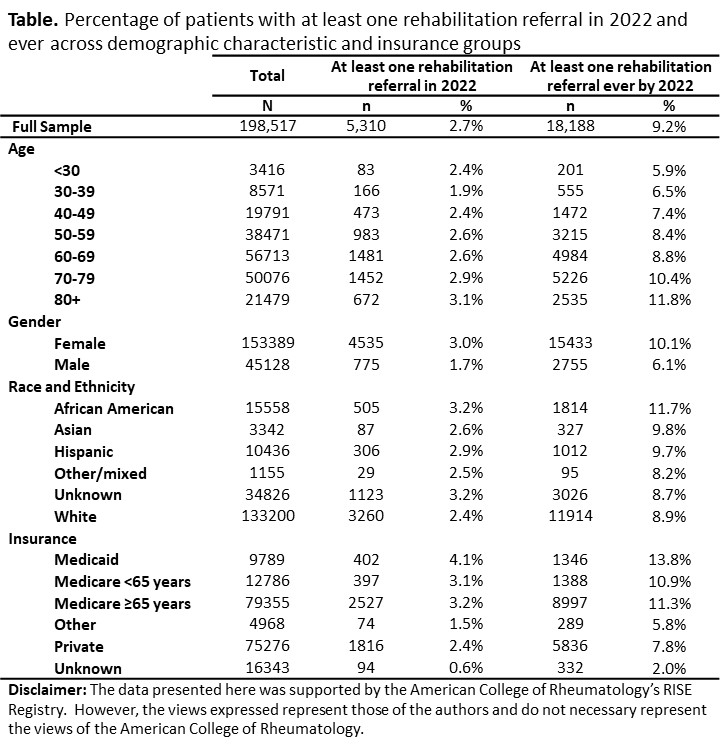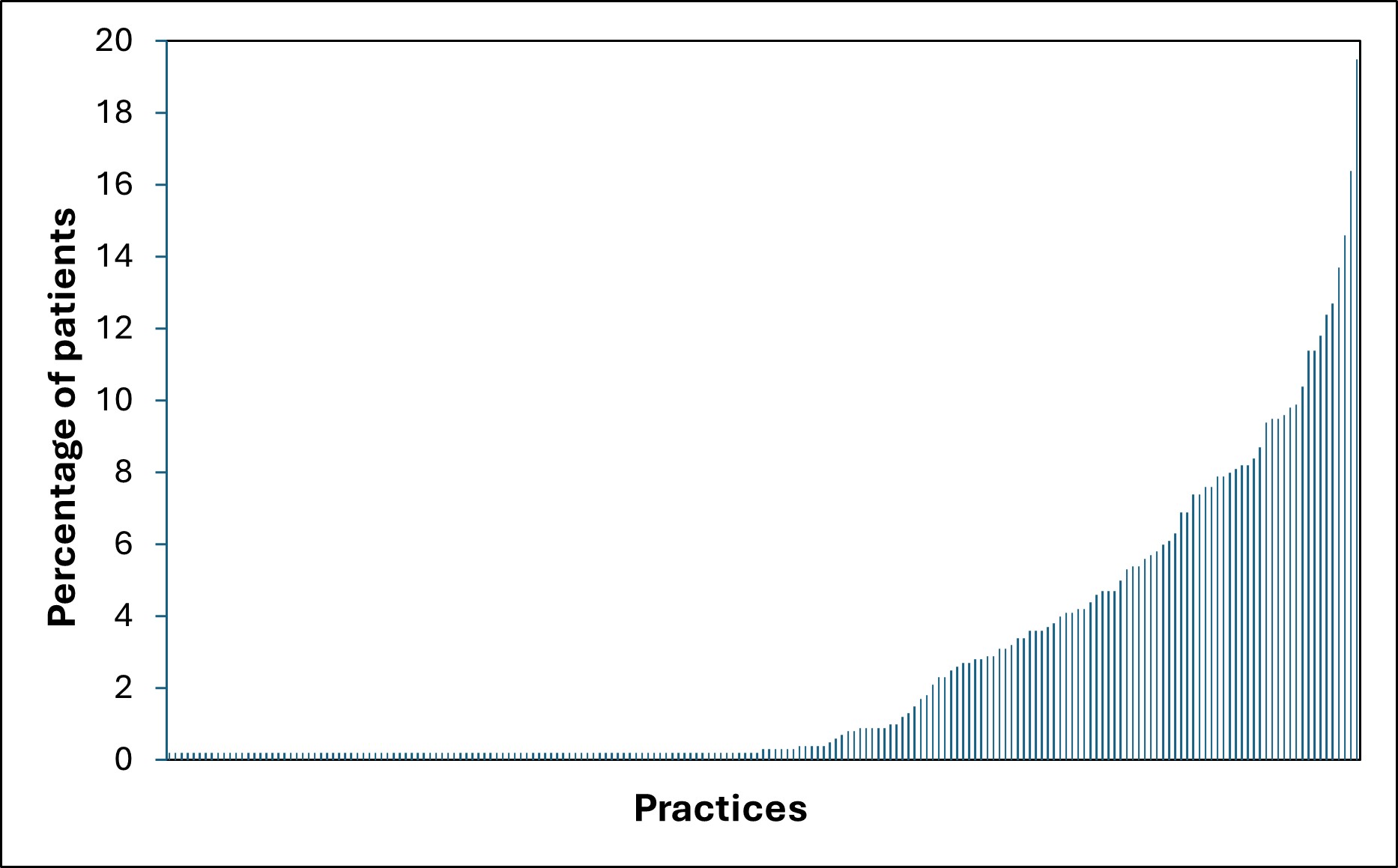Session Information
Session Type: Poster Session C
Session Time: 10:30AM-12:30PM
Background/Purpose: Adults with rheumatoid arthritis (RA) commonly report functional limitations, pain, and fatigue that contribute to diminished quality of life and limit participation in valued life activities. Rehabilitation services, including physical therapy (PT) and occupational therapy (OT), are specifically indicated to improve physical function and optimize participation in life activities, yet rehabilitation utilization in the United States lags behind the expected need. The extent to which rheumatology clinicians refer adults with RA to rehabilitation services is unknown. We assessed referrals to rehabilitation (PT or OT) services across rheumatology practices within the ACR’s RISE registry.
Methods: Data were derived from RISE, a national, EHR-enabled registry that passively collects data on all patients seen by participating rheumatology practices. As of September 2023, RISE held validated data from 1333 providers in 242 practices, representing approximately 30% of the U.S. clinical rheumatology workforce. Practices were eligible for this study if they had ≥ 1 patient record indicating a referral to rehabilitation in the “plan of care” for any patient, indicating that such referrals would be captured in the data tables available through the RISE registry. We included patients from eligible practices who were ≥ 18 years old, had ≥ 2 ICD codes for RA (714.x, M05.x, M06.x but not M06.4) ≥ 30 days apart, and had ≥ 1 visit in 2022. The primary outcome was the percentage of patients with ≥ 1 rehabilitation (PT or OT) referral documented in 2022. We also expanded the window to assess the percentage of patients who had ≥ 1 rehabilitation referral at any time by the end of 2022. The percentage of patients with ≥1 rehabilitation referral was reported by patient characteristics, including age, gender, self-reported race and ethnicity, and insurance. We also examined variations in documentation of rehabilitation referral at the practice level among practices with ≥ 20 patients.
Results: Of 240 practices with any “plan of care” data available in the RISE registry, 215 (90%) practices had ≥ 1 patient record for which rehabilitation was mentioned. 198,517 adult patients with RA from 206 practices were included, with a mean (SD) age of 63 (14) years. 77% were female, 67% non-Hispanic white, and the most had either Medicare (40%) or private (38%) insurance. Only 2.7% of patients had ≥1 rehabilitation referral in 2022; 9.2% had ≥1 referral in the expanded “ever” window. The percentage of patients with a rehabilitation referral in 2022 ranged from 1-4% across demographic groups (Table). Across the 197 practices with ≥ 20 adult patients with RA, we observed wide variation in rehabilitation referrals (Range 0% – 19.3%; Figure).
Conclusion: Extracting rehabilitation referrals from the plan of care field in the RISE registry was feasible, as eligible data were available for 90% of participating practices. Preliminary estimates indicate that rehabilitation referral from rheumatology practices is low, though there is considerable variation across practices. This study should be repeated in other data sources, given the limitation of data available in the RISE registry and the challenges of extracting information on rehabilitation referrals.
To cite this abstract in AMA style:
Thoma L, Li J, Schmajuk G. Examination of Rehabilitation Referrals from Rheumatology Practices for Adults with Rheumatoid Arthritis in the RISE Registry: A Feasibility and Descriptive Study [abstract]. Arthritis Rheumatol. 2024; 76 (suppl 9). https://acrabstracts.org/abstract/examination-of-rehabilitation-referrals-from-rheumatology-practices-for-adults-with-rheumatoid-arthritis-in-the-rise-registry-a-feasibility-and-descriptive-study/. Accessed .« Back to ACR Convergence 2024
ACR Meeting Abstracts - https://acrabstracts.org/abstract/examination-of-rehabilitation-referrals-from-rheumatology-practices-for-adults-with-rheumatoid-arthritis-in-the-rise-registry-a-feasibility-and-descriptive-study/


